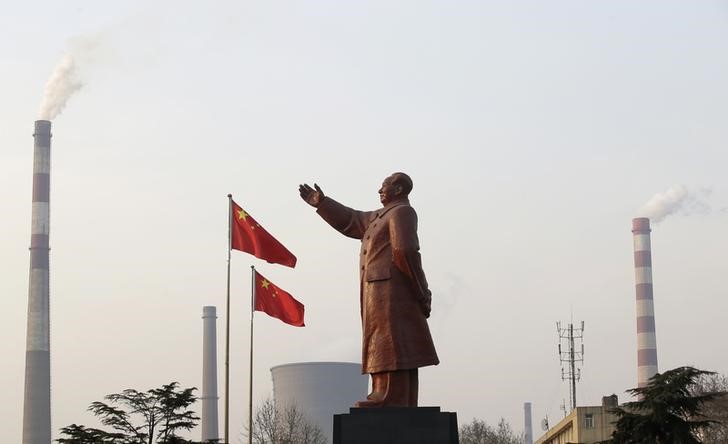Investing.com-- China re-entered disinflationary territory in October, data showed on Thursday, as both consumer and producer inflation contracted amid weak retail spending and a worsening slump in the manufacturing sector.
Consumer price index (CPI) inflation shrank at an annualized 0.2% in October, data from the National Bureau of Statistics showed. The reading was in line with expectations, and worsened from the 0% reading seen in September.
Month-on-month, CPI inflation shrank 0.1%, reversing the 0.2% rise seen in September.
October’s data shows that continued stimulus measures from Beijing and some pent-up demand did little to improve overall spending. CPI inflation contracted despite the Golden Week holiday in the first week of October, which usually sees a jump in discretionary spending.
Weakness in the yuan also limited overall spending, while consumers also remained on edge over any more economic headwinds in the country, especially as business activity remained weak.
Producer price index (PPI) inflation shrank 2.6% in October, slightly better than expectations for a drop of 2.8%, but contracted from the prior month’s reading of 2.5%. PPI has now shrunk for a 13th consecutive month.
Chinese manufacturing activity unexpectedly contracted in October, recent data showed, as mild improvements in local demand were largely offset by worsening economic conditions in China’s biggest export destinations.
This trend was also evident in trade figures released by the country this week, which showed exports sinking more than expected, while imports unexpectedly grew.
Thursday’s weak inflation readings indicate that Beijing will likely have to do more to shore up local economic activity, especially as the country’s key manufacturing sector faces an extended downturn. October was also the second time that both CPI and PPI inflation shrank this year.
Chinese consumer sentiment has worsened substantially this year, keeping retail spending and CPI inflation under pressure.
China was the sole major economy working to shore up inflation this year, as most of its global peers struggled to contain a post-COVID inflationary boom.
But Beijing has limited headroom to loosen monetary policy further, given that interest rates are already at record lows. Any further loosening in policy will also dent the yuan, which is trading close to one-year lows.
Still, the government plans to shore up growth with a massive 1 trillion yuan ($136 billion) bond issuance in the fourth quarter.
